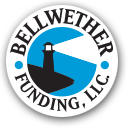Unconventional Loans Rise Again

As the Federal Reserve slowly raises interest rates, small businesses and individuals alike are starting to feel the squeeze of market forces. This is all calculated, of course, because if interest rates stay at record lows, the Fed will have limited ammunition to fight an impending economic slowdown– or dare we say it, another recession. Lenders always have their fingers on the pulse of the economy, and market sentiment. When they see these changes in the market occurring, they need to change their lending strategies. As all these variables begin to coalesce, we will begin to witness a new rise of unconventional loans.
Why is this happening?
We all know what happened in 2008 when predatory banks started bundling and then selling risky subprime mortgages. It built an enormous house of cards that was inevitably destined to pummel the American economy for years to come. Through that traumatic experience, came the realization that new regulations were necessary to ensure the same thing would not happen again. This new regulatory environment is leading to the largest banks pulling back slightly from this sector of the economy, only lending to those who are highly qualified and low risk. Leading to an unprecedented surge of web marketplaces, online lenders, and non-bank alternative lenders offering their services. It’s now easier than ever to apply for a mortgage or small business loan, and you can do it from the comfort of your own home.
These new players in the lending game are finding the need to take on slightly more exposed loans in order to survive. We are slowly finding that these loans, while inherently riskier than conventional, can be done in a much safer environment than in the pre-2008 housing crisis.
Standard Proofs of Income vs. Nonqualified Proofs
Traditionally, individuals and businesses have a few standard ways of proving their income.
- For individuals, several months of pay stubs, bank statements, and credit scores are typically what lenders are seeking to prove your income.
- For small business loans, tax returns, bank statements, and profit/loss balance sheets are usually a few of the documents needed to secure a loan.
These days, there are countless lenders out there who are willing to take on a bit more risk in order to offer loans to more individuals and small businesses who might not be able to offer the same traditional proofs of income as those in the past. Focusing far less on FICO scores, instead of taking a more holistic approach to understanding the full financial picture of the applicant.
A couple of classic categories of people who might not necessarily be able to provide traditional proof of income, but who are being targeted for these types of loans, the retired and the self-employed. Alternative mortgage lenders now account for almost half of all home loans, according to the Federal Reserve. These new lenders are catering to a new crop of unconventional clients. Instead of relying on antiquated processes, there are new techniques using automated loan decision algorithms and risk/return trade-offs. Taking as many of the complicated variables into consideration to make sure the loan is right for them, but more importantly, making sure it is the right fit for the client.
To learn more about how the Bellwether Funding process of providing loans to those in need, please call us today or contact us through our website.





